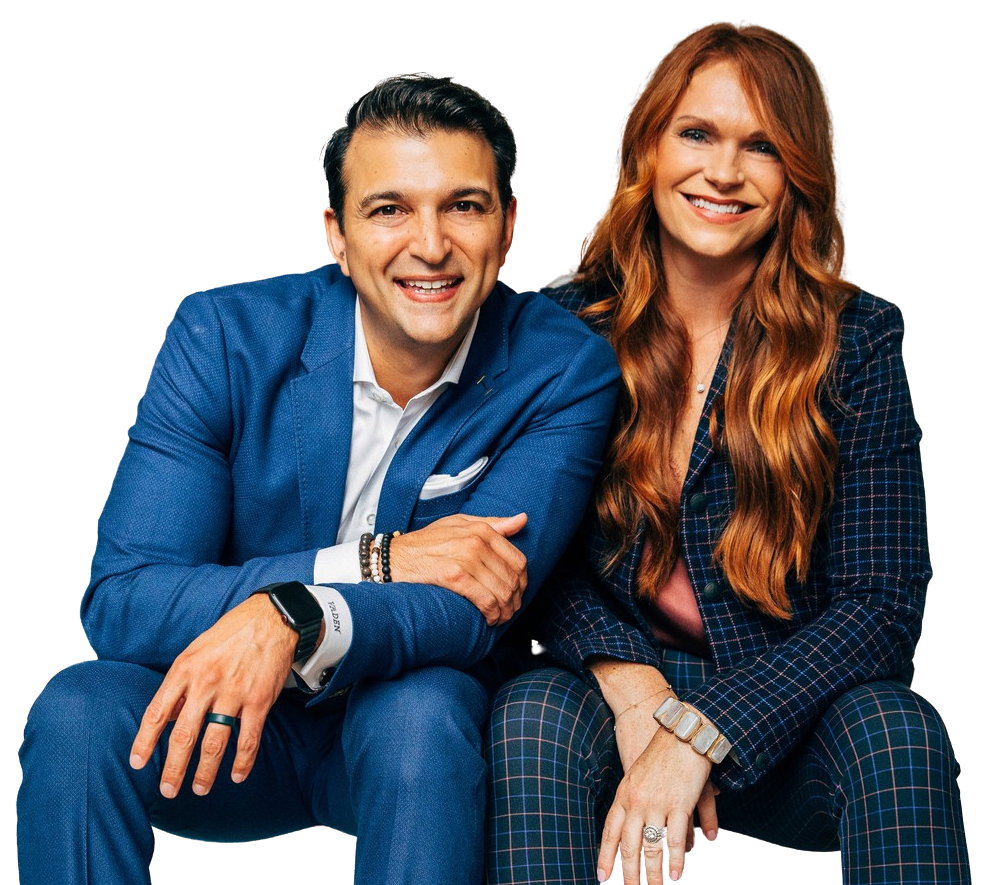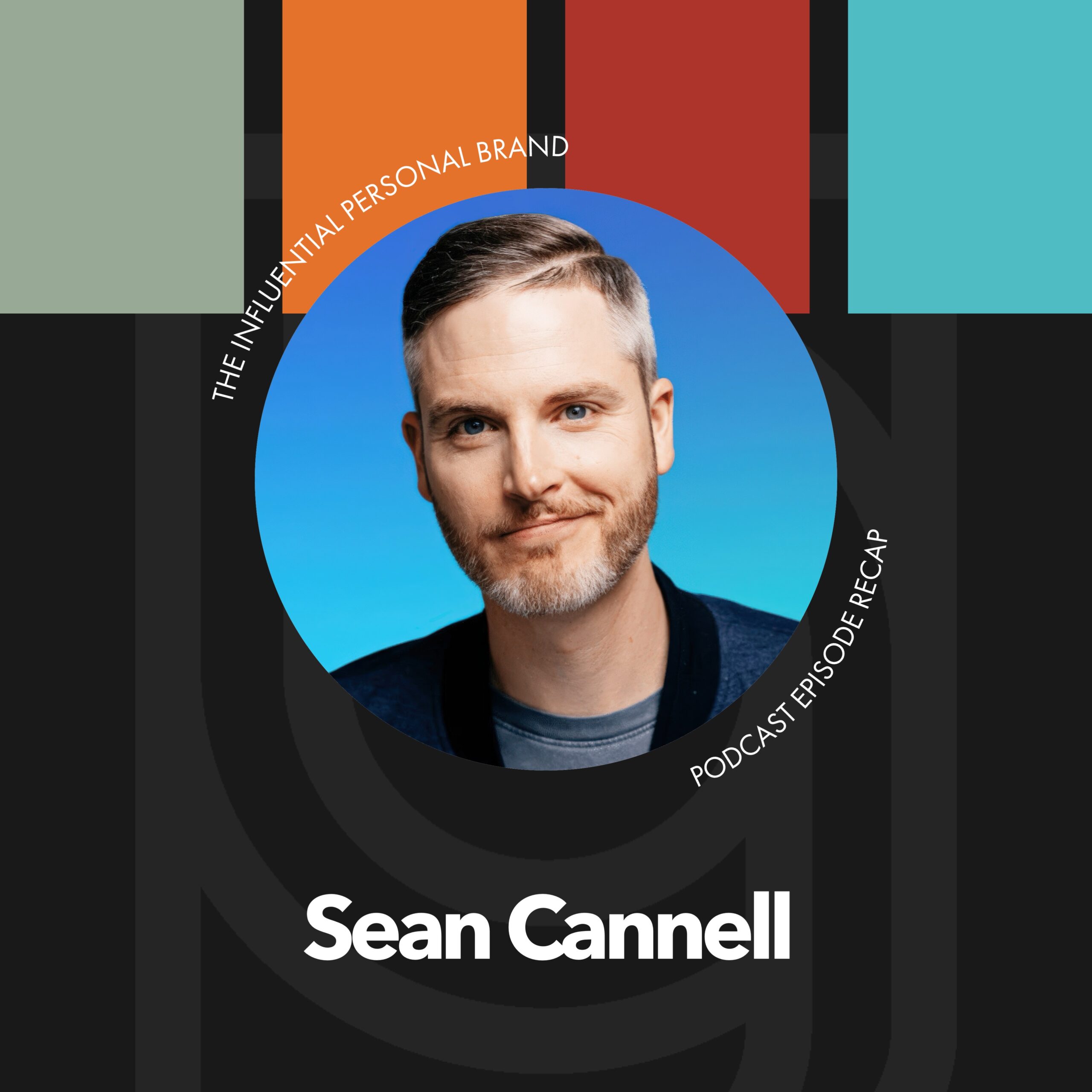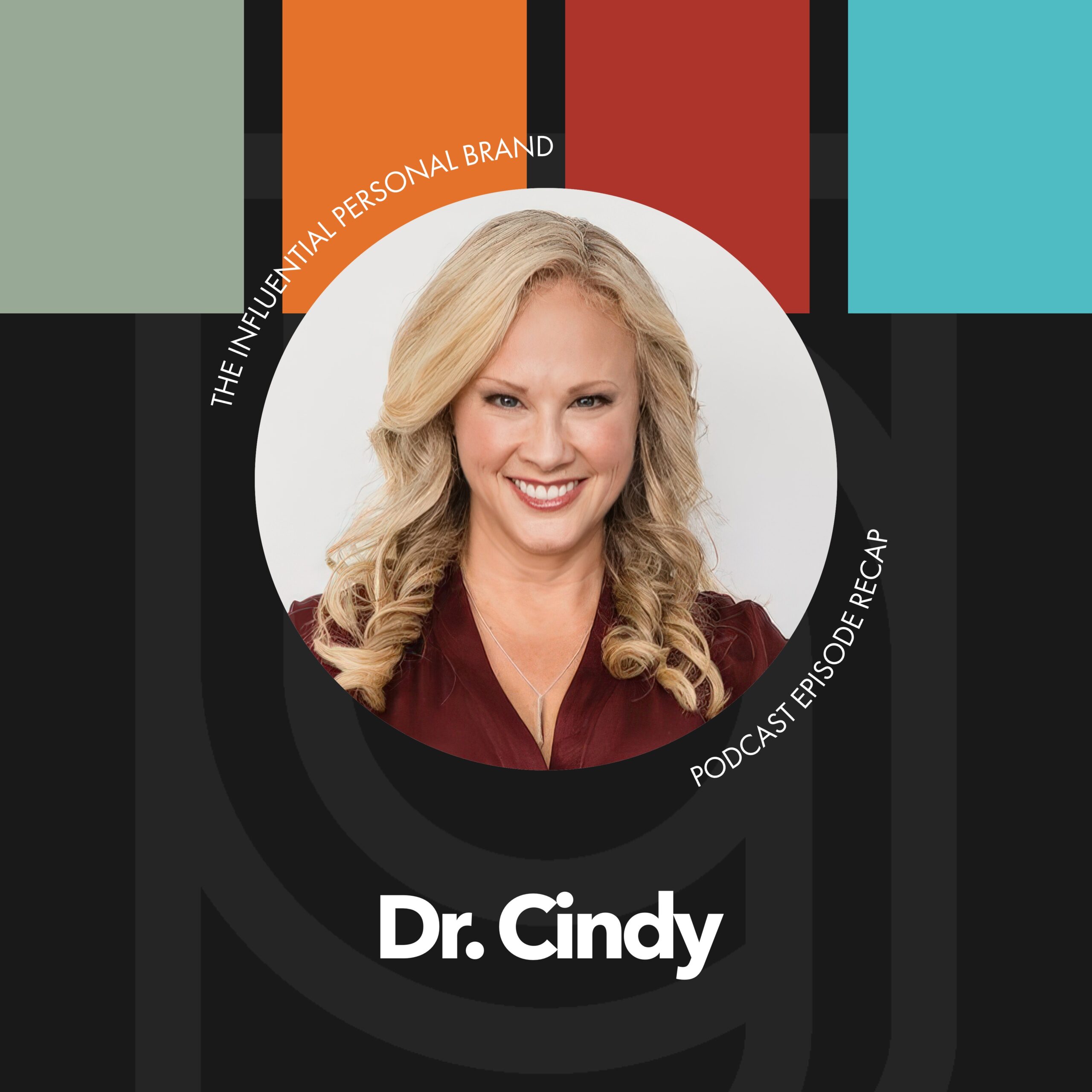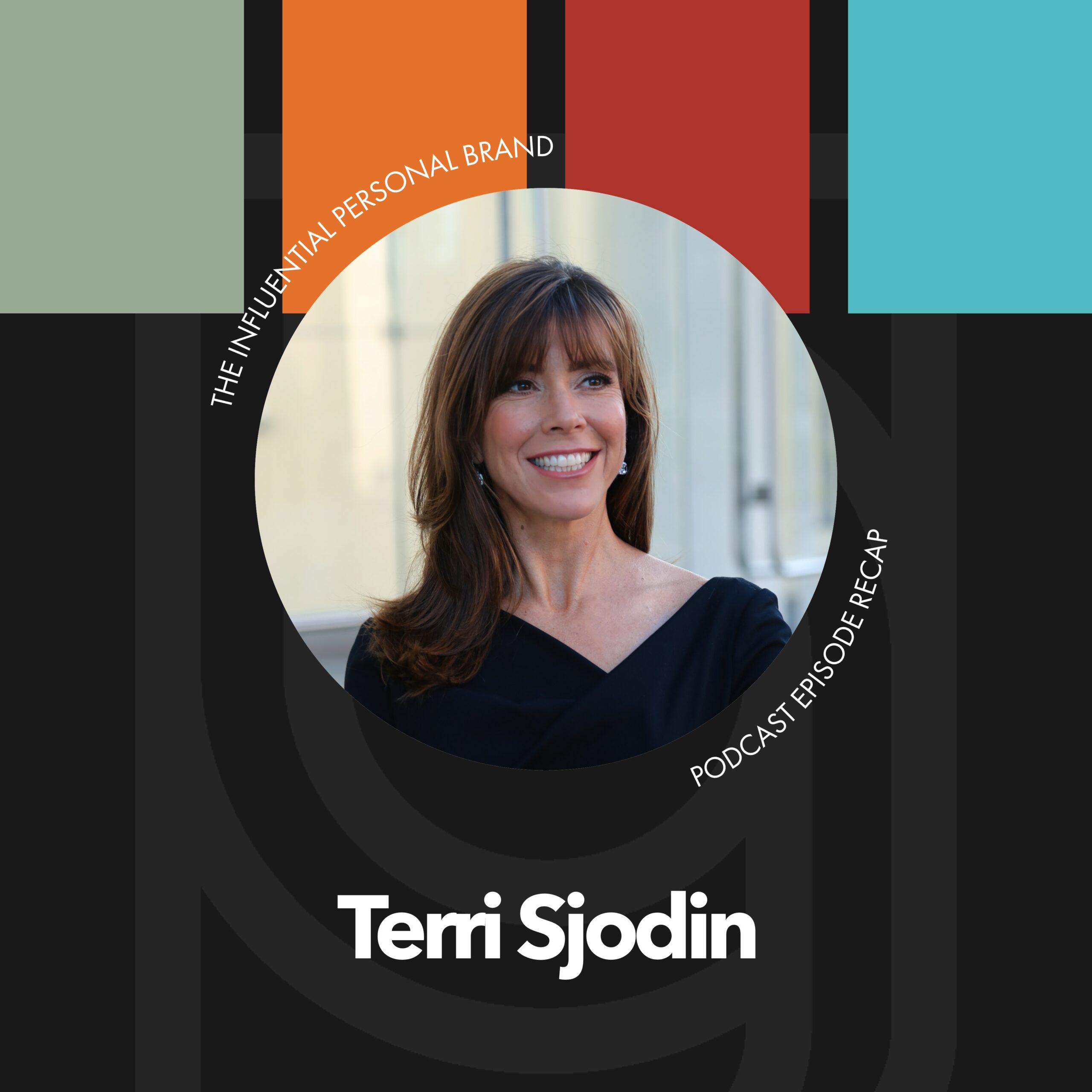RV (00:17):
I wanna share with you a four step process for exactly how to leave your job and start a side hustle. Welcome back to the Influential Personal Brand podcast. I am recapping the addition of the interview I just did with Kelly Roach. And one of the things that we were talking in there was about how did she start her own business? And I thought, gosh, I get this question so often, which is, how do I know and how do I orchestrate leaving my job and starting my personal project or my side business or even leaving the, the current thing you’re doing with your, your personal brand and then starting something new. And so I’ve got a four part process for this that I think will really help you. And these are kind of four principles and tactics and strategies for how to think about transitioning from the thing that you’re doing now into the thing that maybe you want to do.
RV (01:17):
And this could apply to, even if you already have your own business and you’re trying to pivot, you’re trying to maybe rebrand, you’re trying to move into a different space. But specifically I want to talk to those of you who are maybe working at like a corporate job or something and you want to try to leave. The first thing I want you to know, and I believe this firmly, this principle is actually in my take the stairs book towards the back of the book, there is a principle that I call crush It where you’re at, crush It where you’re at. And I don’t think that we hear enough about this in the world today. So many people just say, ah, you know, your job sucks. Quit your job and just start your side hustle. Like that’s gonna be a dream. Let, let me tell you something.
RV (02:01):
Being an entrepreneur is far from a cakewalk. It is grueling hours, it is rejection, it is fear. It is often years of brokeness. It is very challenging. It, it can be con, it creates a lot of conflict on a marriage. It makes it really hard to have a family. Like the on the entrepreneurial dream is also got lots of nightmare components of it. Now, I love being an entrepreneur and I love working with entrepreneurs, but I think it is far over glamorized. And not every person is a great fit to be an entrepreneur. And even many people who could be entrepreneurs, I think make really great intrapreneurs. What’s an intrapreneur? And an intrapreneur is someone who can be a mover and shaker inside of a company who can innovate and create and can, can cause change and make new things happen inside of the right culture.
RV (02:55):
So this first principle, crush it where you’re at is really important. And even though it’s not popular, and even though you may not want to hear it, ’cause perhaps you’ve already made up your mind, no, I hate my job. I wanna leave it. Or I, I don’t like my current business or my current business model, I wanna leave it. And just before you do, I just want to encourage you to crush it where you’re at. What does that mean? That means be excellent at what you’re doing now, whatever it is that you’re doing. Now, why do I say that for two very specific reasons? Okay? The first reason is because when you’re doing something excellently, it often looks different and feels different than when you’re doing it in a mediocre fashion, right? I mean, the, if you’re hiking up a mountain and it’s a really big mountain, you might get tired and that might not seem awesome, but once you’re at the top of the mountain, it can totally be worth it.
RV (03:58):
And too many people give up while they’re on the climb and they haven’t yet experienced the, the fruits and the benefit of everything that their current thing has to offer, right? And you go, maybe you hate your job because you’re not good at it. Maybe you hate your job ’cause you’re not doing enough. Now maybe you hate your job ’cause your boss is a jerk and it sucks and it’s negative and it’s not fun. And you go, great, go ahead and quit the job. But many times I think people have an opportunity to sort of excel at the thing they’re doing before they just abandon ship. And that, that leads me to the other reason why I think crush it. Where you’re at is, is really important. It’s really important because how you do one thing is how you do everything. How you do one thing is how you do everything.
RV (04:46):
That’s the age old quote. And I have found that to be really, really true. And too often people think, oh, if I just abandoned my corporate job and I start my own business, it’s gonna be a cakewalk. And you go, well, if you’re not putting everything you have into the thing you’re doing now, you might find that you won’t do it on your own either. And now you don’t have any of the guarantee or stability or the things that, that come with a corporate job. So I just want you to really think about that and go, am I crushing it where I’m at? Am I doing the best I know how to do? Have I experienced all there is to experience here? Am I squeezing all the juice out of the thing that’s in front of me? Now, if it’s just your dream and you’re a hundred percent sure and you just want to go, fine, go, or if, if, if you just live in a, if you’re working in a place that is just terrible and they treat you like crap and you want to go, go, but I would even, so I would still say, gosh, be really, really good at what you’re doing.
RV (05:44):
Be the best at what you do. Be be performing at your personal best, the the best you’ve ever done in your role before you decide to leave. Because what you might find is that once you’re performing at your personal best, you might decide you wanna stay, you might figure out, actually this isn’t so bad. Actually, there’s more opportunity. Actually, once I started performing at my best, they gave me more money, they opened new doors, they gave me more responsibility, they, they put me in charge of new initiatives. And so that’s really, really important because sometimes we think the grass isn’t, is always greener. And the reason the grass looks greener is ’cause you’re not watering your own grass, okay? So crush it where you’re at, and then even if you’re gonna leave, carry that momentum into the thing that you’re gonna do. Now, the second part of leaving your job and starting your own business or starting your side hustle, or again, it could be that you maybe have a current business model, and it’s like, I wanna just transition from what I’m doing is a rule that I like to call the 70 30 rule.
RV (06:45):
The 70 30 rule. How does the 70 30 rule work is simple. It means that there, in order to succeed at something and really blow it up, it takes a lot of focus, right? In order to win anything, you really have to crush it. As we sort of, you know, religiously say around Bram Builder’s group, if you have diluted focus, you will get diluted results. If you have diluted focus, you will get diluted results. So how then do you transition between two things? How do you go how do I do a good job, you know, at my corporate thing, but I really wanna like start my own business or my side hustle and I wanna go full time and when’s the right time to do that? Or how do I serve my current clients that I have and my current model, but then transition to my new model or my new dream or my new message or my new audience?
RV (07:38):
And that’s a really important tactical question, and I’ve got a functional answer that we’ve used and I think we’ve seen a lot of clients do this successfully. And it’s the 70 30 rule. And the 70 30 rule says, start your new thing, okay? And take your old thing and expend the minimum amount of resources that you can to maintain the level of performance of the old thing, right? So basically put it on autopilot, but not in a way that it’s, it’s autopilot. Like it’s going down. Put it in autopilot that it’s like, okay, I’m gonna maintain this level of performance over here and then dedicate 100% of your excess energy into the new thing and build the new thing, right? This is probably the nights and the weekends and the late hours and the early mornings, and you’re studying and you’re reading and you’re, you’re probably getting coaching and you’re investing money and you’re not making much money, but you’re building the thing.
RV (08:39):
You’re building the thing and you’re starting, you’re starting that thing and keep building that thing until your income reaches a 70 30 split to where you go, 30% of my income is coming from the new line of business, or it’s coming from the new side hustle, or the new project or the new audience. And what happens is you are earning a hundred percent of your income from the first thing, and now your income is starting to balance out to where you get to 70 30. It’s about that time that I would recommend that is when you make the leap, you rip off the bandaid, you jump into the deep end of the pool you, you, you wisely are reducing your risk. If you can get your income to about 30% on the new thing. Do you have to do this? Of course not. You don’t have to do anything that I say.
RV (09:30):
This is just an idea and an observation. But what I would say is a lot of entrepreneurs live by the seat of their pants and it’s kind of like, you know, there’s this phrase in the entrepreneur community that says, you know, you build the plane, you jump off the cliff and build the plane on the way down. And in some ways that’s always true, but in other ways that’s downright stupid. And keep in mind that 95% of businesses fail. So just because a lot of entrepreneurs say it’s a good idea, 95% of those people don’t turn out to be successful. So I’m not taking advice from a group of people where 95% of ’em failed the class. So the smarter thing to do is to do calculated risk. And that’s what the 70 30 rule is all about. The 70 30 rule instead says, man, if 30% of my income is coming from the new thing, first of all, you get a sense of whether or not you really like it and you really want to do it.
RV (10:25):
Second, you really get to determine is there product market fit? Is is there an audience for what I want to do? And do I have the ability to sell it to them? Because if you just pull the ripcord and jump ship and start something from scratch, you might find nobody wants to buy that thing. Or you might find you don’t really love the thing, or you’re not as good at it as you thought, or that you don’t have a great marketing plan for it or a great sales strategy for it. And you need to try to figure out some of those kinks on the side and before you kind of jump full time, at least that’s how the 70 30 rule works. And that’s, that’s what we advise. So that’s the 70 30 rule. The third thing, and this is super practical, important, is to be debt free.
RV (11:10):
Be debt free. To the extent possible, the more that you can lower your personal debt, the more likely you are to succeed as an entrepreneur. Why? Because of something called Financial Runway, right? And this term, financial runway refers to, you know, a plane taking off. And if you think of like, planes don’t just suddenly take off like a helicopter, right? They need runway. It takes velocity, it takes speed. In order for them to catch the tra you know, trajectory and be able to climb that is runway. Well, cash is the runway. And if you run outta cash, you run out of runway and the plane stops, right? So you could start something and you could kind of get it going, but if you don’t generate enough cash or you don’t generate cash fast enough, or you’re burning cash, you’re generating cash in the business, but it’s, it’s less than what you’re burning in your personal life, the runway ends, the plane stops, and the business never takes off.
RV (12:12):
That’s what financial runway means. So the, the, the more disciplined you are about your personal expenses, the longer the runway you give yourself. It also means the lower the stress you have, right? When I’m in debt, if, if I’m in debt, suddenly I’m more desperate for a sale, right? Like, the more in debt you are, the more desperate you are to make a sale. The more in debt you are, the more desperate you are to make a sale. Why not? ’cause You’re a bad person, but because you have external pressure, you’ve got mouths to feed, you’ve got bills to pay. So the more you can lower those bills, the more you extend the runway of having a chance to sort of pursue your dreams. When you’re debt free, you’re, you, you’re beholden to fewer masters, and this is biblical, right? The borrower, slave to the lender, but literally and pragmatically and functionally going, I’m not as dependent on my job.
RV (13:13):
I’m not as dependent on, you know, the where my income is coming from. I’m not as dependent on my current customers because I don’t have other financial obligations. So staying debt free creates freedom in your life, freedom to pursue your dream, and, and it creates more runway, it creates a longer timeline for you to figure it out and make it successful. So it’s a really important part I think, of launching a successful business as an entrepreneur. Unless you’re raising a bunch of money and generating millions of dollars or, you know, you just hit the jackpot, but that’s few and far between.
RV (14:01):
The fourth key to breaking free from your corporate job, if you hate it or if you just have a dream that just is, it is time for you to pursue is to start first with what you know best. Start first with what you know best. What I mean by that is your best chance of making money is doing more of the thing that you already know how to do. Now that may not be the most exciting thing for you, right? That may not be what your dream is, but it is almost always the fastest path to cash, right? The fastest path to cash is to do more of the thing you’ve already been doing, to do better at the, the, the thing you already know. And so you might be doing it on your own. You might be, you know, s starting your own business or your own side hustle, but serve the people that you have access to.
RV (14:57):
So a real, if you need money right now, if you have lots of money, this thing changes. If you have lots of money, you have lots of runway, you can build a whole brand new business, you can dream up anything you want. But in the practical reality for most of us is you’re gonna have to make money fairly quickly. And, and so you have to do what you have to do in order to get, in order to earn the right to do what you want to do. You have to do what you have to do in order to earn the right to do what you want to do. And so you’re going to have to pay a price for a while, and part of that price you would pay is just offering your expertise maybe in, in a very, in a way that accesses the, the people who are closest to you.
RV (15:42):
Now, I’ll give you the an example. When I first wanted to leave the corporate job that I had while I was in graduate school and I wanted to become a professional speaker, I was in the Toastmasters world championship of public speaking. And I spent a couple years just studying the psychology of laughter and learning how to be funny on stage because I wasn’t funny in real life, even though I am hilarious in real life now. But I had to learn to be funny on stage. And so I studied humor. And even though I didn’t wanna teach humor for a living in that season of life, the most tactical, practical skill that I had was teaching humor. And so, a lot of people don’t know this, take the stairs. It was not actually my first book, it was my first traditionally published book. My first book was actually called No laughs, NO to no laughs, KNOW How to Be Funny to Make More Money, no laughs to No Laughs, how to Be Funny to Make More Money.
RV (16:43):
And the first income I actually ever earned as a speaker was I was hosting classes where people could, could they could buy a ticket to a class where I could teach them everything that I had learned about comedy, and then I would sell my books at the back of the room. And that was how I started. Even though I knew I wasn’t gonna do that forever. I started first with what I knew best. And if you really want a, a chance to escape, you know, something that you, a situation that you’re in now, right now professionally, that you don’t love, or if you’re really, really just passionate about having your own thing and you really want to pursue that, I would encourage you to start first with what you know best as a stepping stone to getting to do the thing that you really want to do later.
RV (17:28):
Because you have to do what you have to do in order to earn the right to get to do what you want to do. So there’s four key principles that I think we don’t hear enough about for strategies, concepts that I think if you are trying to make a pivot, if you’re trying to make an escape, if you’re trying to start something new, those are some modalities of thinking that I hope will really, really help you because we want you to succeed and we want you to be able to pursue your passion. We believe that the world is a better place when you’re listening to the calling on your heart and serving the people that you were meant to serve. So in the meantime, while you’re figuring it out, keep coming back to the influential personal Brand podcast and share this episode with someone in your life that you know is in this professional dilemma right now. We’ll catch you next time.














